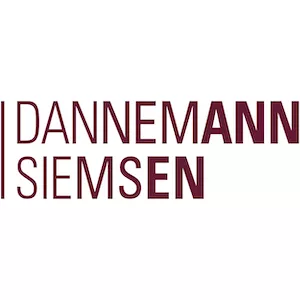- within Intellectual Property topic(s)
Procedural law, as a social science, undergoes constant change. In recent decades, legislative measures designed to streamline the resolution of litigation have received considerable attention as citizens voice their desire for fair, expeditious and effective legal order, with real mechanisms for court protection.
During the history of the court system, suits have evolved from a simple means for claiming rights to an instrument for making them concrete. Civil suits not only aspire to uphold the rights of those who have them, they enable injured parties to recover assets of which they were deprived through noncompliance with legal order.
Yet suits require a considerable period of time in which to develop; courts need this time to ensure the integrity and content of their decisions. It is impossible to receive parties' claims, gather evidence and issue a decision all simultaneously. Urgent relief (subdivided into preventive and interlocutory injunctions), in this sense, is one of the legal devices that can alleviate the tension between the needs for swift, effective justice and a certain time for cases to be processed.
The Civil Procedure Code (CPC) of 1973 vested judges with broad, general power, both to effect common provisional measures and to create any other preventive measures the actual case requires to avoid irreparable damages from violation of the right in question. It authorized immediately applied injunctions, without a hearing for the defendant (thus impeding the opposing party from preventing their execution upon learning of the requested measure).
The CPC underwent major improvement during the 1990s with a series of legislative mini-reforms. Among the most pertinent changes was advancing of the effects of relief in any and every suit in which a party's subjective right is threatened if he must wait for the suit to be processed before concrete enforcement measures are established (CPC Article 273).
Also added was a procedure resulting in a decision (which provides for a preliminary injunction of the same nature) that orders or prohibits action under penalty of fine and/or other binding measures (CPC Article 461). This procedure initiated injunctions to prohibit the practice or continuation of unlawful acts.
In this historic context, Law 9,279/96, the current Industrial Property Law (IPL), was enacted one decade ago. In due time, legislators added to this IPL Paragraphs 1 and 2 of Article 209, which ensured the owner of a violated industrial property right, in the suit's court records, the practical means for halting the unlawful act in the timeframe that business demands.
Under this Paragraph 1, a judge may order immediate suspension of the industrial property rights violation, without hearing the defendant, in order to avoid irreparable damages. The above-mentioned Paragraph 2 provides that, in cases of flagrant reproduction or imitation of a registered trademark, a judge may order seizure of all the merchandise, products, objects, packaging, labels and other items that contain the counterfeit or imitated trademark.
The nature of immediate injunctions, whether preventive or interlocutory, set forth in the legal provisions above has been the subject of much discussion. However, this distinction is of little importance and reflects a conceptual concern. The immediate injunctions in Paragraphs 1 and 2 of IPL Article 209 may be defined as injunctions prohibiting the practice or continuation of an unlawful act (whose scope was clearly extracted from CPC Article 461), which may be preventive or interlocutory depending on the wording of the legal claims. The High Court of Justice says the following:
- The granting of a request for injunctive relief for violation of a regularly issued Brazilian Patent Trademark Office (BPTO) patent, or an act that occasions it, in order to avoid irreparable damages, is conditioned upon the presence of the Civil Procedure Code requirements for ordering a provisional measure or for anticipating the effects of the equitable relief, as applicable, since Law 9,279/96, Article 209, §1 only guarantees the material right of the injured party to preliminary suspension of the damaging act. (REsp 685.360, Superior Court Justice Nancy Andrighi, DJ11.04.2005, p.303)
When the relief sought in a preliminary request is part of the cause of action, it is an interlocutory injunction; if it preserves a right, it is a preventive injunction. Notwithstanding, interlocutory and preventive relief measures are fully fungible (under CPC Article 273, Paragraph 7). For this reason, if an interlocutory injunction is erroneously requested instead of a preventive one, or vice versa, the appropriate injunctive relief for the specific situation shall be granted.
It is not the judge's discretion, but the presence of the legal requirements that ensures the party's subjective right to be granted the injunctive relief applicable to the actual case.
Prohibitory injunctions do not presuppose damages, but target illegal acts. Damages are an essential requirement for mandatory compensation, but not for establishing that an act is illegal. If an illegal act is independent of damages, there must be an injunction against the illegal act itself. The measures set forth in Paragraphs 1 and 2 of IPL Article 209 should be considered in this light: they protect trademarks, inventions and against unfair competition. They do not require evidence of loss, because prohibitory injunctions are preventive, and thus always directed toward the future.
Brazilian courts have widely applied the injunctions of Article 209, including in patent violation suits. One outstanding case was settled in the 3rd Circuit Court of Niterói, Rio de Janeiro (Case No. 2003.002.001732-1), where an injunction was granted to seal equipment that violated a patent and that was on board a foreign vessel in Brazilian territory.
Even when proof of patent violation depends on evidence from a technical expert, an injunction is applicable. Such a case requires submission of opinions from experts in the area, or even request for a preliminary judicial investigation, carried out without hearing the opposing party. Note that to grant an injunction, in addition to the threat of damages, the law requires relevant grounds of the right claimed (for preventive injunctions), or verisimilitude of the claims (for interlocutory injunctions). Thus there is no requirement for full proof, which would be incompatible with the injunction device.
In its Article 241, IPL also contains an important provision for establishing courts specialized in industrial property, which not only expedites judgment of the cases, but also strengthens judges' knowledge of the matters, thus raising the level of justice and effectiveness of decisions. Based on the cited provisions, the Rio de Janeiro Federal Court created four first instance courts specialized in industrial property (35th, 37th, 38th and 39th Federal Courts), and two specialized panels in the Region 2 Federal Court (Panels 1 and 2), whose jurisdiction extends to the state of Espírito Santo.
Despite the risks associated with specializing, namely the possible distortions caused by forced standardization of opinions due to the reduced number of magistrates judging cases concerning a single matter, the experience of the Federal Court of the State of Rio de Janeiro has produced encouraging results, most notably the unquestionable expeditiousness of processing of industrial property suits.
These considerations demonstrate that modern civil procedure is concerned with the delay in processing, thus giving rise to injunctions, the prohibitory injunctions of IPL Article 209 and the courts specialized in industrial property. Expeditious justice and the provision of prompt relief are pursued. As the illustrious Rui Barbosa would say, "late justice is not justice, but qualified and manifest injustice."
The content of this article is intended to provide a general guide to the subject matter. Specialist advice should be sought about your specific circumstances.



